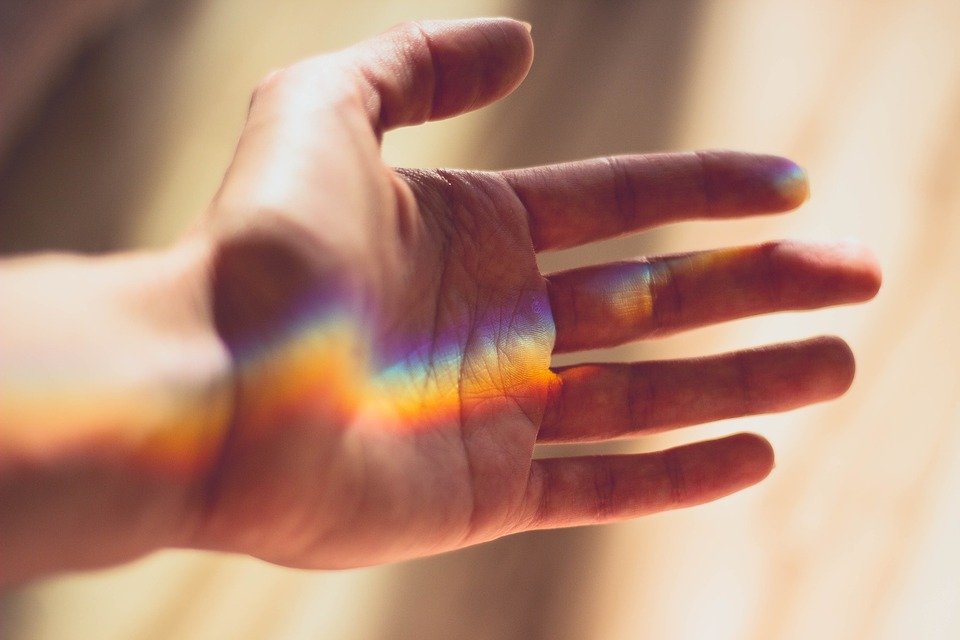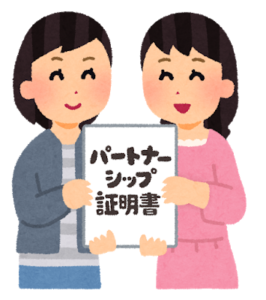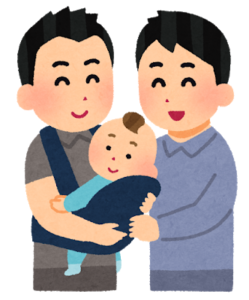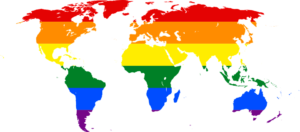日本の会社で働くセクシャルマイノリティ(LGBT+)|LGBT+ in Japanese Workplaces

毎年6月に、多くの国が「プライド月間」を祝います。これは、LGBT +コミュニティを広く世間に伝え、セクシャルマイノリティについて考え・行動する一か月間です。しかし、今年は、新型コロナウイルスの蔓延により、多くのイベントがオンラインで行われ、全面的に中止、または簡略化されました。ただし、これはLGBT +の問題に関する議論が停止したことを意味するものではありません。私の友人や専門家たちの間で浮かび上がった疑問は、「日本でLGBT+として生活するのはどのようなものだろう?」
Every year, in June, many countries celebrate “Pride Month”, a month dedicated to recognizing and celebrating the LGBT+ community. This year, however, due to the spread of the novel coronavirus, many celebrations were moved online, outright cancelled, or minimized to focus on other important movements. However, that did not mean that discussion around LGBT+ issues stopped. One topic that came up amongst friends and other professionals that I know was “what is it like to be LGBT+ in Japan?”

最近の調査によると、日本の人口の8%以上が性的指向または性同一性のマイノリティであり、海外のLGBT+からも関心が高い国となっています。それは13人中1人です!しかし、英語での情報を見つけるのは難しいのが現状です。私はそれを調べて、日系企業で働く友人たちと情報や意見交換を行いました。また、弊社テクダイヤの人事部にも相談しました。
Recent studies show that more than 8% of Japan’s population identify as being of a sexual orientation or gender identity minority. That’s 1 in 13 people! Despite that, it can be hard topic to find English information on, so I decided to research into it and discuss it with Japanese friends in different companies here in Japan. I also consulted with the Human Resources Department here at Tecdia.
 現在、日本では、性同一性や性的指向に基づく差別を禁止する法律はほとんどありません。しかし、東京ではそのような差別禁止法があります。LGBT +の問題に対して先進的な日本の首都東京では、登録同性パートナー数が最も多く登録されています。日本はG7で同性愛カップルに対する法律や支援がない唯一の国ですが、多くの自治体は、健康と住宅に関して同性愛者カップルが直面する差別を減らすことを目的とした「パートナーシップ証明書」を発行しています。ただし、日本に住むセクシャルマイノリティの外国人は、配偶者または扶養家族のビザを申請することはできません。
現在、日本では、性同一性や性的指向に基づく差別を禁止する法律はほとんどありません。しかし、東京ではそのような差別禁止法があります。LGBT +の問題に対して先進的な日本の首都東京では、登録同性パートナー数が最も多く登録されています。日本はG7で同性愛カップルに対する法律や支援がない唯一の国ですが、多くの自治体は、健康と住宅に関して同性愛者カップルが直面する差別を減らすことを目的とした「パートナーシップ証明書」を発行しています。ただし、日本に住むセクシャルマイノリティの外国人は、配偶者または扶養家族のビザを申請することはできません。Currently, in most of Japan, there are no laws preventing discrimination against people on the basis of their gender identity or sexual orientation. The exception to that is Tokyo, which does have such anti-discrimination laws. The capital of Japan’s progressive stance on LGBT+ issues may be why it has the largest recorded numbers of registered same-sex partners. While Japan is the only G7 nation to have no national recognition for same-sex couples, a large number of municipalities have taken it on themselves to issue “partnership certificates” which aim to reduce the discrimination same-sex couples face when it comes to heath and housing. They cannot, however, be used for the purposes of foreign national applying for a spousal or dependent visa.
東京内では、7つの区が同性パートナーシップ(新宿、世田谷、江戸川、府中、豊島、文京、テクディアHQがある港区)を認め、さらに新しく2つの区が2020年にパートナーシップ証明書の発行を開始する予定です。その他にも、9つの区が将来的にパートナシップ制度の採用を検討しています。また、2015年以降、世論調査では同性結婚に対して賛成の意見が過半数をこえ、支持されています。2018年に、Dentsu(株式会社電通)が実施した世論調査によると、78%の人が日本の同性婚を支持しています。
Within Tokyo, seven wards recognize same-sex partnerships (comprising of Shinjuku, Setagaya, Edogawa, Fuchu, Toshima, Bunkyo and Minato, where Tecdia HQ is located), with two more expected to begin issuing partnership certificate in 2020, and a further nine other wards currently considering enacting such recognition in the future. Furthermore, since 2015 polls have consistently shown a majority support for same-sex marriage amongst the general public. A poll conducted by Dentsu in 2018 showed that 78% of people supported same-sex marriage rights in Japan.
Across the world, people generally spend most of their waking hours in the workplace, and Japan – the country famous large amount of overtime typically worked – is no different. This means that LGBT+ acceptance at work is a critical issue facing both employers and employees. Company culture has a lot to do with this, and employees who do not feel welcomed at their workplace are more likely to resign. Nijiiro Diversity conducted a survey of LGBT+ people in Japan in 2018. Their results showed that 71% had no diversity training at work, and 45% had experienced discrimination. Despite that, only 13% reported they were unable to receive the same benefits (such as a spousal allowance) as their heterosexual colleagues.
 実際、企業は日本でのLGBT +への取り組みをますます広げているようです。多様性は、優秀な人材を獲得して維持するだけでなく、ビジネスの利益にプラスの影響を与えます。多様性によって、新製品やシステムの開発を改善するという利点を企業にもたらすことがますます証明されています。ソニー、パナソニック、JAL、資生堂などの世界レベルの日系企業は、LGBT +の従業員を保護およびサポートするためにポリシーを変更しています。ジェンダーのアイデンティティと性的指向のマイノリティに関するトレーニングは現在標準になりつつあります。これらの企業の中で、LGBT +のため変更されたポリシーには、配偶者手当、家族扶養制度へのアクセス、利用可能な場合は家族割引へのアクセス、同等に長い出産休暇と育児休暇の提供など、家族給付を授与する同性パートナーシップの承認が含まれます 。
実際、企業は日本でのLGBT +への取り組みをますます広げているようです。多様性は、優秀な人材を獲得して維持するだけでなく、ビジネスの利益にプラスの影響を与えます。多様性によって、新製品やシステムの開発を改善するという利点を企業にもたらすことがますます証明されています。ソニー、パナソニック、JAL、資生堂などの世界レベルの日系企業は、LGBT +の従業員を保護およびサポートするためにポリシーを変更しています。ジェンダーのアイデンティティと性的指向のマイノリティに関するトレーニングは現在標準になりつつあります。これらの企業の中で、LGBT +のため変更されたポリシーには、配偶者手当、家族扶養制度へのアクセス、利用可能な場合は家族割引へのアクセス、同等に長い出産休暇と育児休暇の提供など、家族給付を授与する同性パートナーシップの承認が含まれます 。Indeed, it appears that companies are increasingly paving the way for LGBT+ inclusion in Japan. Diversity has increasingly been proven to bring benefits to companies not only in capturing and retaining top talent, but also in improving development of new products and systems such that it has a positive effect on the business’ profits. Japanese companies have taken note, and several household-name level companies – such as Sony, Panasonic, JAL and Shiseido – have changed their policies to protect and support their LGBT+ employees. Training regarding gender identity and sexual orientation minorities is now becoming more commonplace. Among these companies, policies extended to LGBT+ include recognition of same-sex partnerships for the awarding of family benefits, such as spousal monetary allowances, access to family support systems, access to family discounts, and providing equally-long maternity and paternity leaves.
In this regard, despite being a small company, Tecdia is no different from those household names. Tecdia’s HR Department has facilitated numerous lectures, such as organizing members from the LGBT+ community (through the Minato Ward office) to come and speak at internal training. Staff in same-sex partnerships are provided with the same benefits as married heterosexual couples. Previously, the company has supported a staff member in transferring from the head office in Japan to the US Tecdia sales office. In this case, the primary reason being for the staff member’s request to transfer being that the US allowed for same-sex marriage. Furthermore, the company’s relaxed dress code ensures that you can dress to express yourself freely and comfortably without worrying about having to conform to strictly gendered uniforms.
これらの取り組みや会社を構成する素晴らしい人々のおかげで、テクダイヤは多様性を尊重する社風があります。 性別、性的指向、人種、宗教、出身国などに関係なく、テクダイヤは優秀な人材を歓迎します。
Due to all of that, and because of the great people who make up the company, the Tecdia culture is one that actively celebrates diversity. No matter your gender, orientation, race, religion, country of origin or anything else, Tecdia welcomes bright thinkers and hard workers.
Which is why, to any LGBT+ people who are dreaming of living and working in Japan but are worried by the conservative government, I want to say this: Japanese companies are more progressive than they are given credit for. Most Japanese people – especially between the ages of 20 to 50, who make up the majority of the workforce – supportive of LGBT+ people. As many Japanese companies look to bring in foreign talent to globalize their business and diversify their thinking, this is a great chance for LGBT+ people from all countries to experience the wonderful things Japan has to offer.

If you are interested in more information about LGBT+ issues in Japan, please check out these links:
・虹色ダイバーシティ:日本のLGBT +の人々の生活向上を専門とする非営利団体。
・ストーンウォールジャパン:日本のLGBTQIA +の国際的な人々とあらゆる性別、人種、性的指向、国籍、または宗教の同盟国にサービスを提供するコミュニティ組織。(英語のみ利用可能)
・電通ダイバーシティラボ:2018年10月にLGBT +に関する広範な調査を実施した、ダイバーシティとインクルージョンの専門組織。この調査には、全国で20〜59歳の60,000人が参加しました。 結果はここで読むことができます。
・Nijiiro Diversity: a non-profit organization dedicated to improving the lives of LGBT+ people in Japan. https://nijiirodiversity.jp/nijiiro_en/
・Stonewall Japan: a community organization serving the international LGBTQIA+ people in Japan and allies of every gender, race, sexual orientation, nationality or religion. https://stonewalljapan.org/
・Dentsu Diversity Lab: a specialized organization in the area of diversity and inclusion, which conducted an extensive survey regarding LGBT+ in October 2018. This survey involved 60,000 individuals aged 20-59 across Japan. You can read the results here.
そして、LGBT+のサポート興味がある、港区で働いている方が居れば、港区のリーブラでは、7月29日で「SOGIハラ」について企業向け講座行います。詳しい情報はこちらです。
If you are interested in supporting the LGBT+ people in your workplace, and you work in Minato, there is a free lecture on sexual orientation and gender identity (SOGI) harassment being held at Libra on July 29. For more details, please visit their webpage (Japanese language only)。


